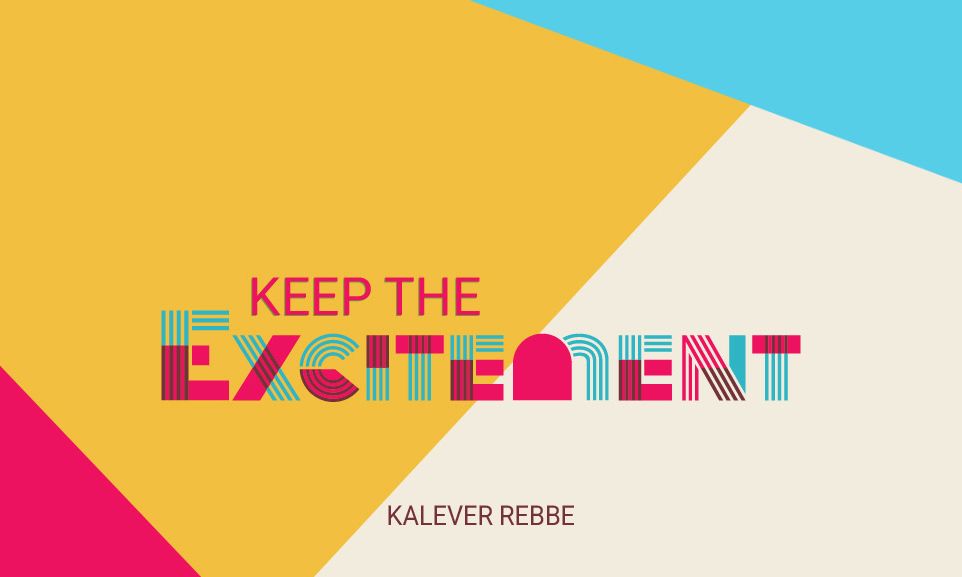
Keep the Excitement
The “extras” we do in the course of performing mitzvot are rewarded in this world. What are those “extras”? We are rewarded for the amount of preparation, excitement, passion, joy, and love that we invest in a mitzvah.

“This month shall mark for you the beginning of the months; it shall be the first of the months of the year for you.” (Shemot 12:2)
An Offering
Before bnei Yisroel left Egypt, they were commanded to offer the Korban Pesach, the Passover Offering. And, the Torah describes in great detail how the offering was to be done and eaten saying, “This is how you shall eat it: your loins girded, your sandals on your feet, and your staff in your hand; and you shall eat it hurriedly: it is a Passover offering to Hashem.” (Shemot 12:11)
We must understand why was this particular mitzvah, commandment, required at this specific time? And further, everything in the Torah is meant to teach us a lesson for our daily lives. What can we learn from the order in which it was eaten?
Reward Here Too
Chazal teaches us that we are not rewarded in this world for the mitzvot we perform. Why is that the case? Man’s purpose in this world is to earn the eternal reward in the World to Come through the performance of mitzvot. Our mitzvot create a stockpile of eternal reward in the world to come. If a person would receive a reward here in this world of temporary existence, we would deplete the stockpile reward that we could have had in the World to Come.
However, the seforim Hakedoshim teach us that there is another type of reward in which we do benefit in this world. The “extras” we do in the course of performing mitzvot are rewarded here and now in this world. What are those “extras”? We are rewarded for the amount of preparation and care that a person places in a mitzvah is rewarded as is the manner in which is performs the mitzvah: the love and simcha he experiences while doing Hashem’s Will.
Torah learning is a good example of how this works. Let’s say that a person sets aside regular time to learn or he attends a Torah class. And throughout his day he is eagerly awaiting that class. When the time comes, he prepares all the things he needs: a book, a pencil, a notebook etc. During the class he turns off his phone and removes all other distractions so that he can learn uninterrupted. When the time finally comes for his class, he learns with a clear mind, with a joy and love for what he is learning. This person fulfilled the mitzvah of learning Torah in the class and is rewarded for that in the World to Come. He is also rewarded for his preparations, anticipation, and excitement for the mitzvah. That reward is received in this world.
The entire process of the Jews leaving Egypt and undergoing that experience of exile and redemption was for the sole purpose of receiving the Torah. There was a concern that the Jews would be worried about the time, resources, and money it would take to observe all the mitzvot. They would be hesitant to accept the Torah because they would think that Torah observance would take them away from pursuing success in this world. Therefore, Hashem provided them with the mitzvah of Korban Pesach, the Passover Offering: Hashem was giving them an opportunity to see that there is also a reward in this world for observing the mitzvot.
How did Hashem show them that through the Korban Pesach?
First: Preparation
First, Hashem commanded the Jews to take the lamb four days prior to the sacrifice to prepare both the lamb and themselves. They had to check the lamb over and over again for blemishes. They had to tie the lamb to the bedpost to remind them when they woke up in the morning and when they went to sleep at night that the mitzvah was soon approaching, building excitement and anticipation. All of this preparation was to teach the Jews that this was not only part of the mitzvah but generated reward in the world as well.
Second: Enjoyment
Then, Hashem commanded them, “This is how you shall eat it: your loins girded, your sandals on your feet, and your staff in your hand; and you shall eat it hurriedly: it is a Passover offering to Hashem.” They were packed up and ready to go. Literally, their sandals were on their feet and their staffs in their hand ready to exit Egypt and begin a new chapter. Everything was done. They had all of the distractions removed, and they were ready to go. Only then were they told to eat it “hurriedly” – with an excitement, love, and simcha for the mitzvah.
Contained within this mitzvah was the guide for how to perform a mitzvah in a way that would generate reward in this world as well: through preparation and expression. They merited the physical redemption, to see a redemption in this world, to leave carrying with them all the Egyptians’ riches. This was the physical reward for the preparation and expression they felt during the process of the Korban Pesach.
In Every Generation
This is what the Haggadah means when it says, “In every generation, everyone must view themselves as if they themselves left Egypt.” To take this lesson and apply it to all of your mitzvot throughout the year – to prepare with care and to perform each and every mitzvah everyday with excitement, passion, joy, and love. This leads to reward in this world; a true physical redemption from the physical pains and struggles that might imprison you.
This is the alluded to us when the Torah says, “And you shall explain to your child on that day, ‘It is because of this that Hashem did for me when I went free from Egypt.’” (Shemot 13:8). The Hebrew word for “this” is זה which is an acronym for זריזות – haste (denotes excitement) – and הכנה – preparation. The preparation and excitement to perform the Korban Pesach led to the ultimate physical reward, a redemption from a bitter servitude.
The Lesson of Pesach
This is what our pasuk is teaching us here when it says, “This month shall mark for you the beginning of the months; it shall be the first of the months of the year for you.” This month of Nissan, when we celebrate Pesach, will be “for you” – for your physical gain and benefit. Apply the lesson of the Korban Pesach by treating each mitzvah as if it was the “beginning” – the first time you ever performed it. That sense of renewal should inspire care and preparation and excitement, passion and love.
Through this process, may each of you merit not only spiritual reward in the eternal World to Come, but physical reward in this world as well. Amen.
***
The Kalever Rebbe is the seventh Rebbe of the Kaalov Chasidic dynasty, begun by his ancestor who was born to his previously childless parents after receiving a blessing from the Baal Shem Tov zy”a, and later learned under the Maggid of Mezeritch zt”l. The Rebbe has been involved in outreach for more than 30 years, and writes weekly emails on understanding current issues through the Torah. You can sign up at www.kaalov.org.



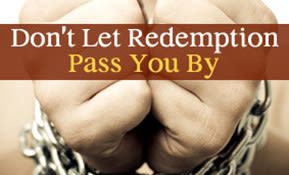
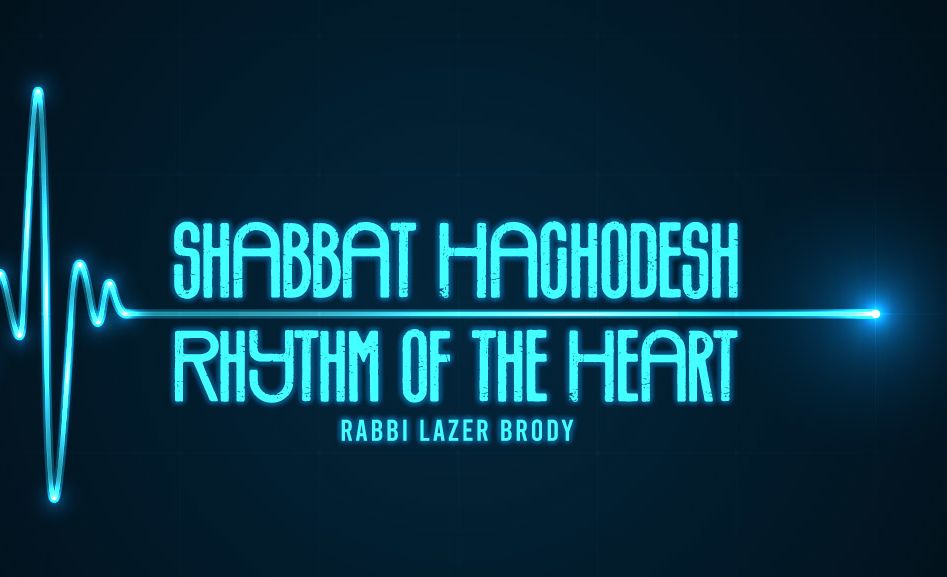
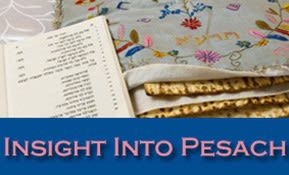

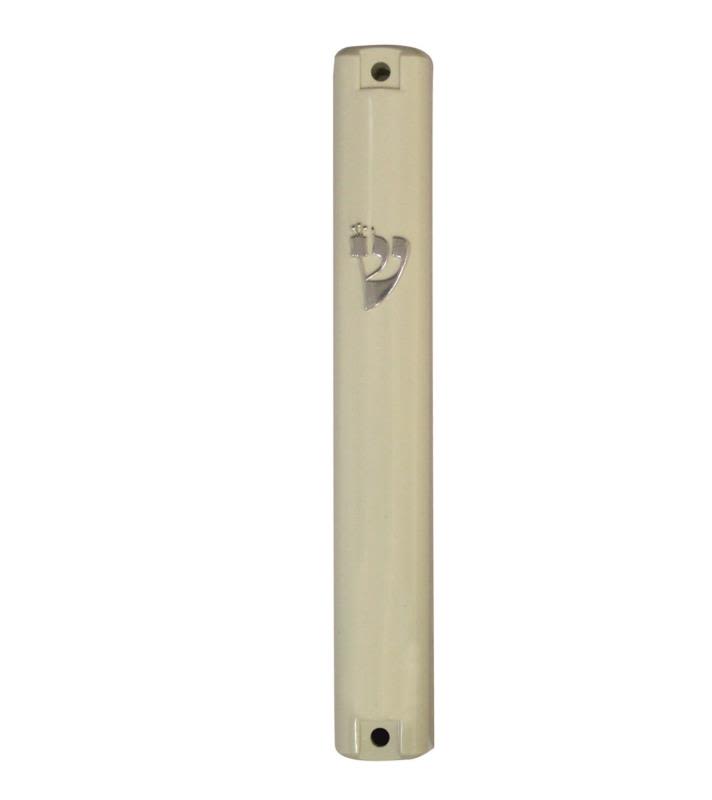
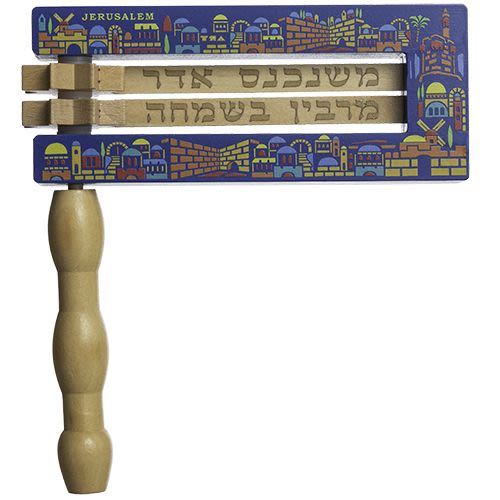

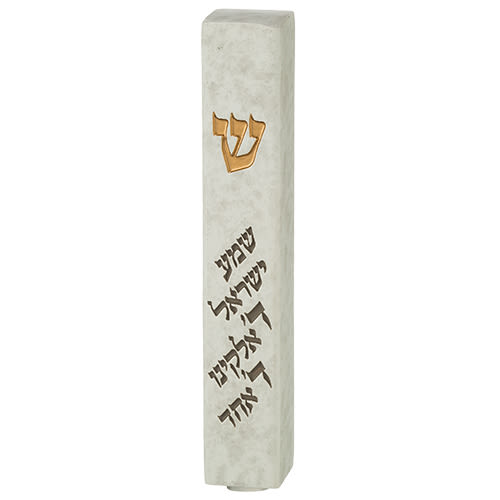
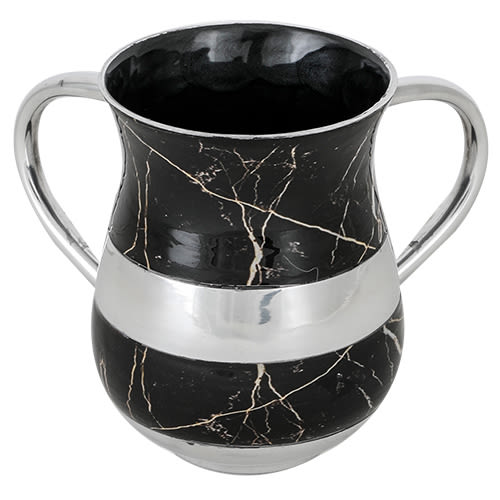
Tell us what you think!
Thank you for your comment!
It will be published after approval by the Editor.